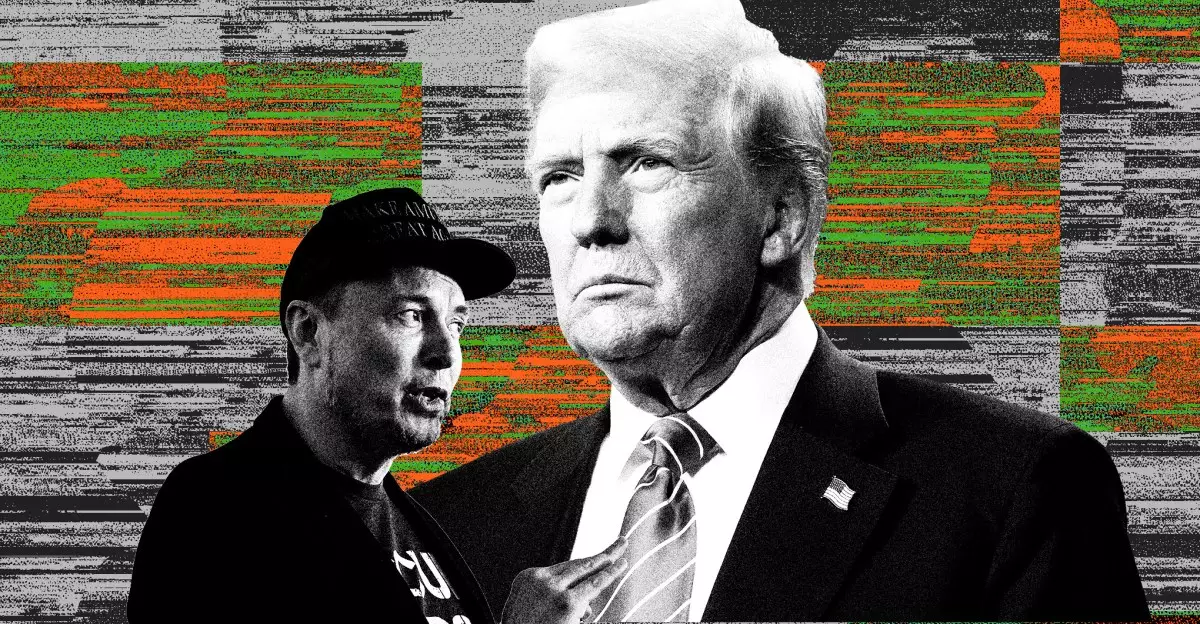Following the tumultuous events of January 6, 2021, the social media landscape underwent a seismic shift, particularly with the actions of major platforms like Twitter, now known as X under Elon Musk’s ownership. The decision to suspend Donald Trump’s account drew significant public and legal scrutiny, leading to lawsuits that would pit the former president against some of the most prominent names in technology. At the heart of this issue is the ongoing debate about free speech in the digital era and the level of accountability social media platforms have towards their users.
Recent reports from The Wall Street Journal indicate that Musk’s platform has settled with Trump for approximately $10 million to resolve the legal battle stemming from his account suspension. This compensation is significant, particularly in light of Musk’s reported financial backing—around $250 million—to bolster Trump’s political endeavors during the last election cycle. This move underscores the intertwining of politics and technology, raising questions about the influence wielded by Silicon Valley moguls over political discourse.
Trump’s lawsuit originally spanned a broader spectrum, targeting not only X but also giants like Facebook and Google. His contention revolved around the assertion that these platforms acted with governmental authority in banning him, which a judge ultimately dismissed in 2022. The case’s dismissal confirmed the legality of Section 230, the regulatory framework that shields tech companies from liability concerning user-generated content. This legal backdrop highlights the challenges faced by users attempting to contest bans on platforms that frame themselves as private entities.
In a strikingly similar scenario, Meta, the parent company of Facebook, opted to resolve its issues with Trump through a $25 million settlement shortly after the ruling. This decision illustrated not only the financial ramifications for these platforms but also their desire to mitigate PR fallout in the face of contentious public opinion. It seems that the strategies employed by major tech companies post-January 6 are evolving as they navigate issues of censorship, public perception, and the risk of expanding litigation.
The legal exchanges between Trump and these corporations reflect a larger narrative regarding free speech online. As discussions surrounding censorship grow in intensity, both the legal and social ramifications become pivotal to understanding the role of social media companies in shaping public discourse. The conflict reveals a pressing need for clarity regarding user rights and corporate responsibilities to protect free speech while managing harmful content.
The intertwining of technology and politics is evolving at a rapid pace, as illustrated by this ongoing saga. The outcomes of these legal battles have broader implications for politicians, social media companies, and the millions of users who engage with these platforms. As they redefine the boundaries of speech and accountability, both entities and users must remain vigilant in the face of potential overreach and the consequences of policy decisions made in the hallowed halls of tech giants. The settlements reached signify a critical juncture in understanding the responsibilities of social media platforms as arbiters of discourse in an increasingly polarized climate.


Leave a Reply